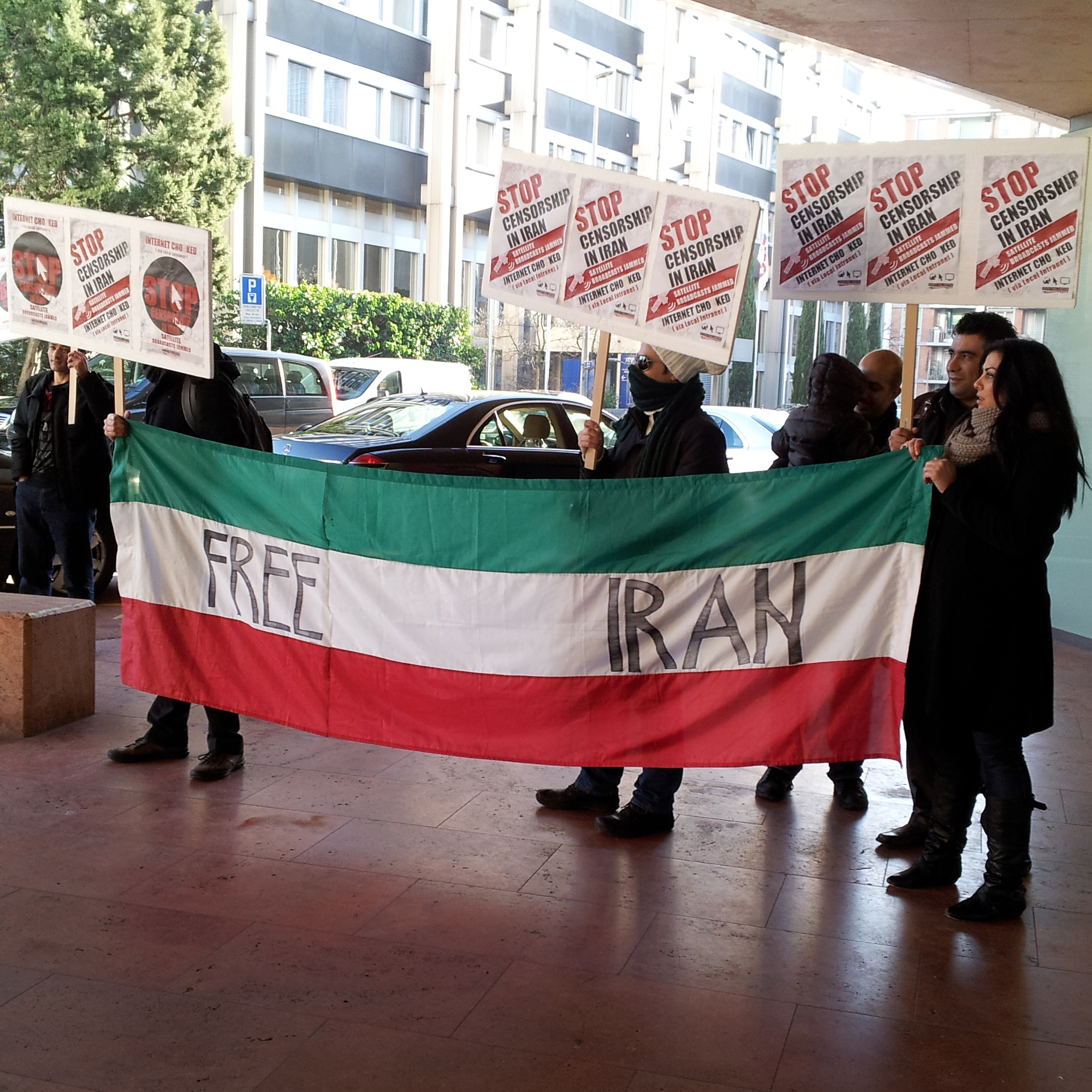International Broadcasters Call for End of Satellite Jamming

 Geneva, Switzerland — Five of the largest international broadcasters have called upon delegates now convening in Geneva for an international treaty-making conference to address the problem of intentional interference with satellite transmissions.
Geneva, Switzerland — Five of the largest international broadcasters have called upon delegates now convening in Geneva for an international treaty-making conference to address the problem of intentional interference with satellite transmissions.
The practice, known as “satellite uplink jamming,” seeks to disrupt international broadcast coverage. And it is spreading, according to the Directors General of five international broadcast organizations: British Broadcasting Corporation (BBC), Deutsche Welle (DW), Audiovisuel Extérieur de la France (AEF), Radio Netherlands Worldwide (RNW) and the U.S. Broadcasting Board of Governors (BBG).
They also noted that satellite uplink jamming is contrary Article 15 of the Radio Regulations of the International Telecommunication Union, and Article 19 of the Universal Declaration of Human Rights, which reads:
“Everyone has the right to freedom of opinion and expression; this right includes freedom to hold opinions without interference and to seek, receive and impart information and ideas through any media and regardless of frontiers.”
The European Broadcasting Union (EBU), the largest association of national broadcasters in the world, conveyed the views of the five broadcasters in a note to the World Radiocommunication Conference (WRC-12), which convenes in Geneva from January 23 through February 17. The Conference is held every three to four years at the International Telecommunication Union (ITU) – a specialized agency of the United Nations – and is mandated to review and revise the Radio Regulations, the international treaty governing the use of radio-frequency spectrum and satellite orbits.
The statement (reproduced below) appeals to “Member States, working with the support of the satellite industry and broadcasters from all regions, to work to end this increasingly prevalent practice of deliberate interference to satellite broadcasting signals.”
EBU support for DG5 position
The European Broadcasting Union is the largest association of national broadcasters in the world, whose Active Members are public service broadcasters in 56 countries corresponding to the ITU European Broadcasting Area. We promote cooperation between broadcasters and facilitate the exchange of audiovisual content. The EBU works to ensure that the crucial role of public service broadcasters is recognized and taken into consideration by decision-makers.
The EBU would like to support and encourage consideration of the following note prepared by DG5, a group of five broadcasters.
DG5 position on activity at WRC-12 to address deliberate interference to satellite broadcasting
The Directors General of the following international broadcasters – British Broadcasting Corporation (BBC), Deutsche Welle (DW), Audiovisuel Extérieur de la France (AEF), Radio Netherlands Worldwide (RNW) and Voice of America (VOA) – have made previous statements condemning the practice of deliberate interference to satellite broadcasting signals in order to silence independent media and prevent free access to information.
In the view of these Directors – known collectively as the “DG5”, this contravenes Article 19 of the Universal Declaration of Human Rights:
“Everyone has the right to freedom of opinion and expression; this right includes freedom to hold opinions without interference and to seek, receive and impart information and ideas through any media and regardless of frontiers.”
The DG5 notes the increase in the practice of deliberate interference to satellite broadcasting signals over the last year and, further, that the impact has extended beyond the DG5 members.
The DG5 notes that the ITU-SG Plenipotentiary Conference in 2010 (PP-10) considered that harmful interference was an issue of serious concern and that the World Radiocommunication Conference (WRC) is the right forum for such a discussion. The DG5 also notes that the Report by the ITU Radio Regulations Board Report to WRC-12 on Resolution 80 (Rev.WRC-07), in Section 4.2.2 “Considerations regarding jamming of satellite transmissions” makes the following statement:
“Harmful interference reports of this type of interference, commonly known as “jamming,” have increased. Despite the application of the administrative procedures in the Radio Regulations, the harmful interference sometimes continues and this has given rise to the idea that something more is needed to quickly identify and eliminate the source of interference.”
After due consideration of the issues involved, PP-10 confirmed that the ITU is the appropriate UN agency to consider further measures against deliberate interference. More recently, the RRB has identified regulatory problems related to Resolutions 80 and 49, creating confusion over rights to use orbital resources and the associated frequencies, as a contributory factor in some cases of unresolved interference.
Accordingly, the DG5 calls upon WRC-12 to consider ways in which to halt such activities which contravene the Constitution and the Radio Regulations (Article 15), to determine, during the conference, how best this issue can be treated and, most importantly, resolved within the ITU. Although the DG5 would like to see decisive measures taken at WRC-12, it also notes the view of the RRB that, “Studies would be needed to determine what additional measures could be incorporated in the Radio Regulations to improve the protection of satellite networks and enable this type of harmful interference to be resolved expeditiously.”
The DG5 sincerely appeals to Member States, working with the support of the satellite industry and broadcasters from all regions, to work to end this increasingly prevalent practice of deliberate interference to satellite broadcasting signals.
The Broadcasting Board of Governors is an independent federal agency, supervising all U.S. government-supported, civilian international broadcasting, whose mission is inform, engage, and connect people around the world in support of freedom and democracy. BBG broadcasts reach an audience of 187 million in 100 countries. BBG networks include the Voice of America, Radio Free Europe/Radio Liberty, the Middle East Broadcasting Networks (Alhurra TV and Radio Sawa), Radio Free Asia, and the Office of Cuba Broadcasting (Radio and TV Marti).
